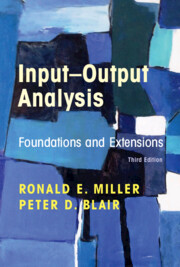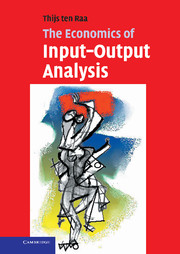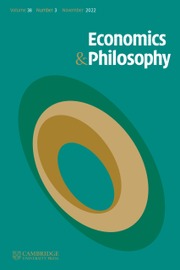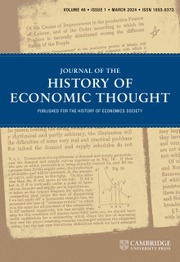Wassily Leontief and Input-Output Economics
Wassily Leontief (1905–1999) was the founding father of input-output economics, for which he received the Nobel Prize in 1973. This book offers a collection of papers in memory of Leontief by his students and close colleagues. The first part, 'Reflections on Input-Output Economics', focuses upon Leontief as a person and scholar as well as his personal contributions to economics. It includes contributions by Nobel Laureate Paul A. Samuelson who shares his memories of a young Professor Leontief at Harvard and ends with the last joint interview with Wassily and his wife, to date previously unpublished. The second part, 'Perspectives of Input-Output Economics', includes theoretical and empirical research inspired by Leontief's work and offers a wide-ranging sample of the state of interindustry economics, a field Leontief founded. This is a strong collection likely to appeal to a wide range of professionals in universities, government, industry and international organizations.
- Focuses on the work of 1973 Nobel laureate Wassily Leontief
- Includes recent research by top names in the field of input-output analysis, covering a wide range of topics
- Includes papers by Nobel laureates Paul A. Samuelson and Lawrence R. Klein and a previously unpublished interview with Leontief and his wife
Reviews & endorsements
'… this is a great volume, especially its first backward-looking part. The volume excels in containing many articles that would do well in master courses emphasizing structural change and economic dynamics, while it is also of interest for courses on spatial, i.e. interregional and international, interactions.' Economic Systems Research
Product details
May 2006Adobe eBook Reader
9780511189401
0 pages
0kg
61 b/w illus. 42 tables
This ISBN is for an eBook version which is distributed on our behalf by a third party.
Table of Contents
- List of contributors
- List of figures
- List of tables
- Preface
- Part I. Reflections on Input-Output Economics:
- 1. A portrait of the master as a young man Paul A. Samuelson
- 2. Leontief's 'magnificent machine' and other contributions to applied economics Karen R. Polenske
- 3. Leontief and the future of the world economy Emilio Fontela
- 4. International trade: evolution in the thought and analysis of Wassily Leontief Faye Duchin
- 5. Leontief's input-output table and the French Development Plan Henri Aujac
- 6. Leontief and dynamic regional models William H. Miernyk
- 7. Experiences with input-output and isomorphic analytical tools in spatial economics Jean H. P. Paelinck
- 8. Leontief and Schumpeter: a joint heritage with surprises Andrew Brody and Anne P. Carter
- 9. Some highlights in the life of Wassily Leontief - an interview with Estelle and Wassily Leontief Christian DeBresson
- Part II. Perspectives of Input-Output Economics:
- 10. A neoclassical analysis of total factor productivity using input-output prices Thijs Ten Raa
- 11. What has happened to the Leontief Paradox? Edward N. Wolff
- 12. The decline in labor compensation's share of GDP: a structural decomposition analysis for the United States, 1982 to 1997 Erik Dietzenbacher, Michael L. Lahr and Bart Los
- 13. An oligopoly model in a Leontief framework Robert E. Kuenne
- 14. Economies of plant scale and structural change Iwao Ozaki
- 15. Technological change and accumulated capital: a dynamic decomposition of Japan's growth Masahiro Kuroda and Koji Nomura
- 16. Japan's economic growth and policy-making in the context of input-output models Shuntaro Shishido
- 17. Contributions of input-output analysis to the understanding of technological change: the information sector in the United States Lawrence R. Klein, Vijaya G. Duggal and Cynthia Saltzman
- 18. How much can investment change trade patterns? An application of dynamic input-output models linked by international trade to an Italian policy question Clopper Almon and Maurizio Grassini
- 19. Social cost in the Leontief environmental model: rules and limits to policy Albert E. Steenge
- Subject index
- Author index.







